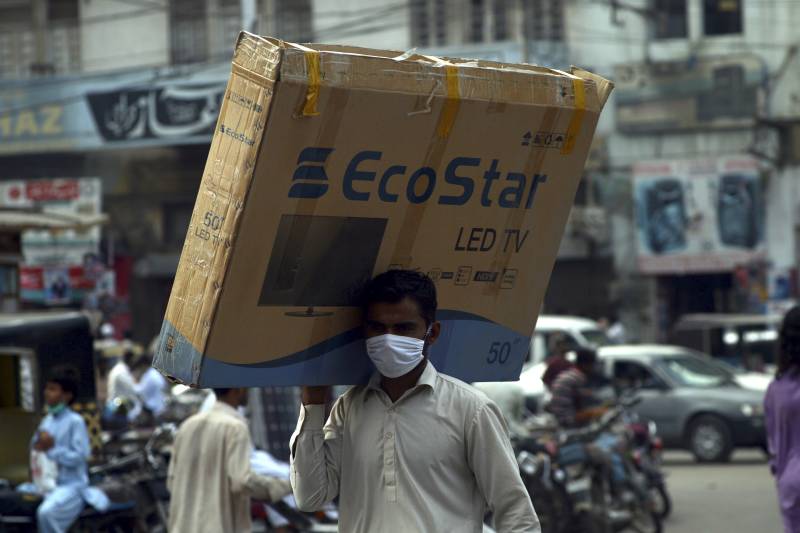No industry promotion and jobs creation plan in budget: PIAF

Stay tuned with 24 News HD Android App

The Pakistan Industrial and Traders Associations Front (PIAF), raising its serious concerns over the federal budget 2020-21, termed it a conventional budget, as the government has not announced an initiative to promote business activities to retain jobs in the industry amidst worldwide corona pandemic.
PIAF Chairman Mian Nauman Kabir, in a joint statement with Senior Vice Chairman Nasir Hameed and Vice-Chairman Javed Siddiqi, showing their disappointment over the budget presented by Federal Minister for Industries and Production Hammad Azhar at the National Assembly, observed that the no plan was given in the budget that could promote business activities and help create more employment opportunities.
“If it's a Corona-based budget, no steps have been announced to tackle this serious issue,” he said and added that unrealistic targets of 2.1% GDP growth and 27% growth in revenue without any no new tax has been given in Budget, which cannot be achieved.
He said that the no financial plan has been placed for the Covid-19-hit domestic trade and industry, importers, exporters, small and medium enterprises who have been severely affected due to the prolonged lockdown.
Mian Nauman Kabir said that the PIAF was expecting a relief-focused budget, with huge relaxation in utility tariffs to facilitate the documented and registered SMEs and the whole and industry.
PIAF senior vice chairman Nasir Hameed said that PIAF's fundamental demand of reduction in sales tax from 17 percent to single digit was not accepted, as not a single percent cut in ST has been proposed in the budget.
The PIAF had submitted proposals with the federal government, urging it to come up with a relief-focused and tax-free budget in the face of Covid-19, but unfortunately, no such announcement in this regard was made.
Nasir Hameed said that no policy has been announced to reduce the energy cost that is one of the biggest reasons of high input cost. He added that demands of interest-free loans for registered small businesses and removal of withholding tax and end to advance tax at import stage have not been accepted.
PIAF leadership, however hailed reduction in regulatory duty on some smuggling prone items to keep these goods under legal imports, regulatory duty on several industrial inputs is also being reduced to reduce cost of doing business, tariff protection for domestic industry by increasing regulatory duty on import of those items which are also locally manufactured, incentivizing soap manufacturing industry by reducing rate of additional customs duty and enhancing scope of concessions available to Special Economic Zones.
PIAF vice chairman Javed Siddiqi said that the IMF and G-20 countries have already provided relief to Pakistan by deferring loans, but the government failed to pass on this benefit to the public.
PIAF leadership said that the government GDP target is not achievable as the entire world including Pakistan is going through an economic downturn, due to Covid-19. The government will have to revisit its calculations, as the virus keeps on spreading for the next few months.
They added that budget document did not give any solution to the business community for their tax refund issues, which must have to be resolved on priority basis.
The observed that such initiatives also result in job creation. Such financing helps businessmen enhance their working capital and better manage their inventory, they added. They believe the decrease in borrowing costs coupled with the decline in energy price may raise the exports in days to come.
They said that the cost of doing business and cost of production have shot up to the level of uncompetitiveness. The cost of borrowing was huge and capital financing had become more expensive. They said that a significant cut in discount rate would inject fresh blood into the industrial sector, which was facing a number of internal and external challenges.
